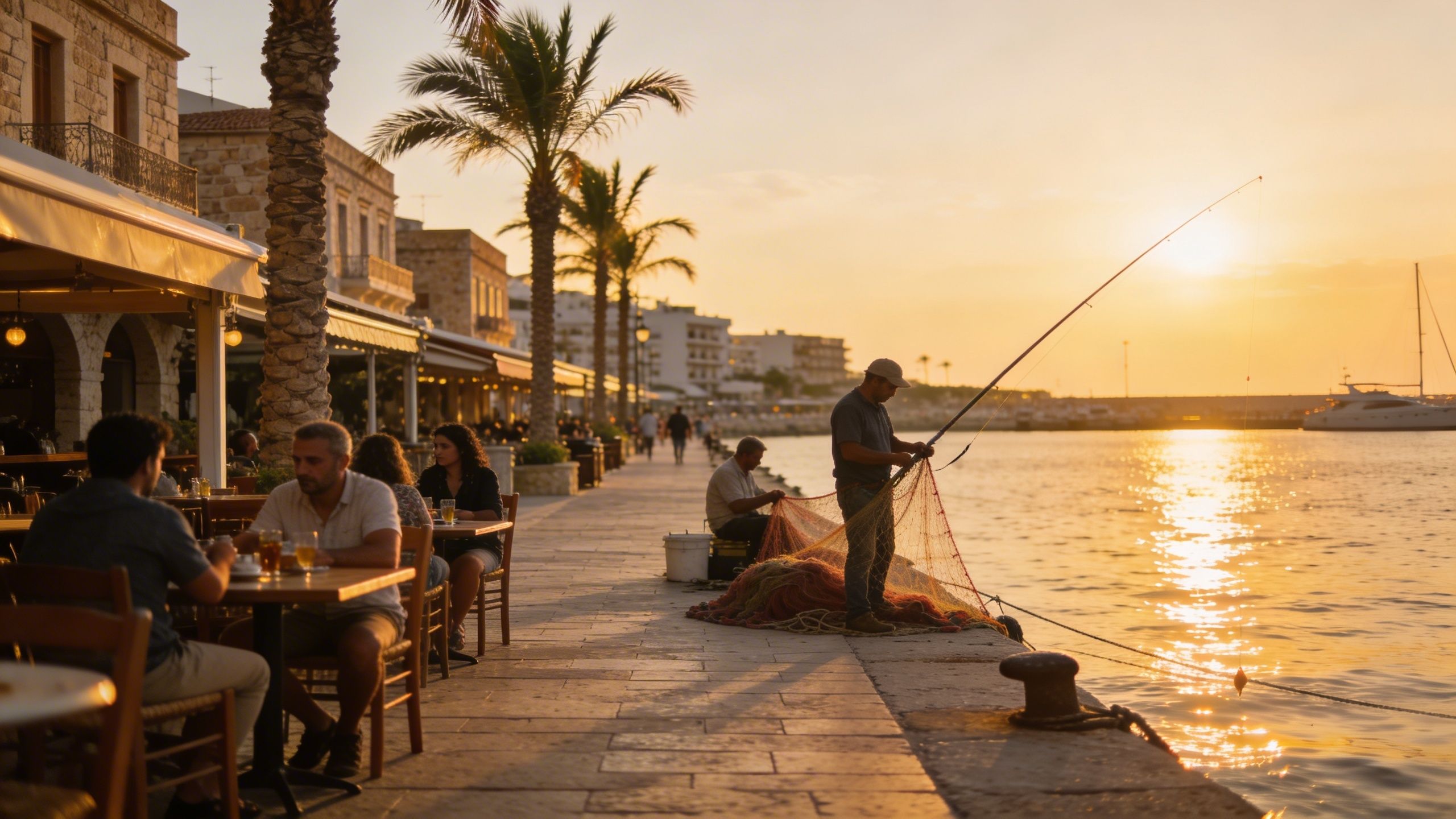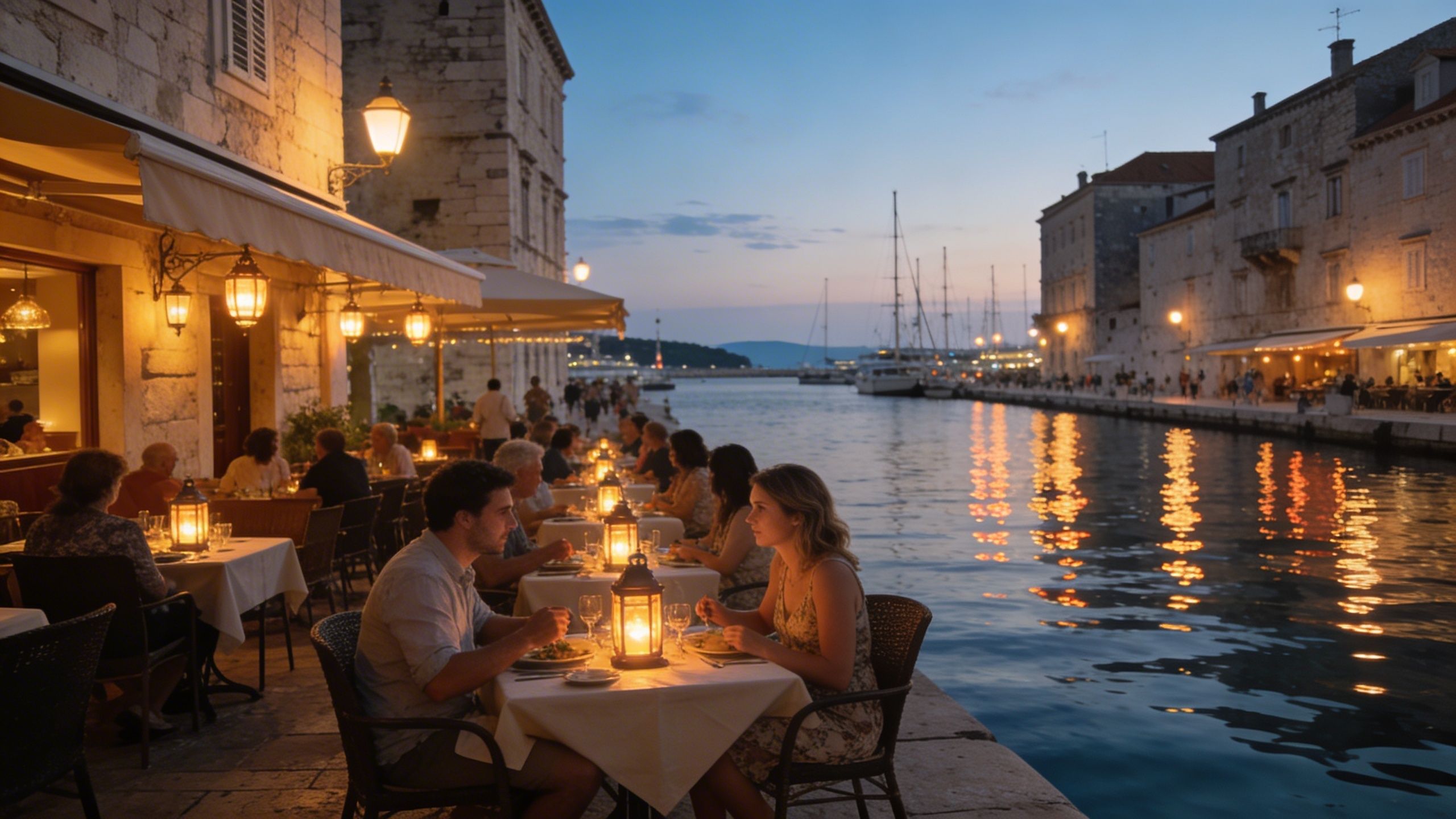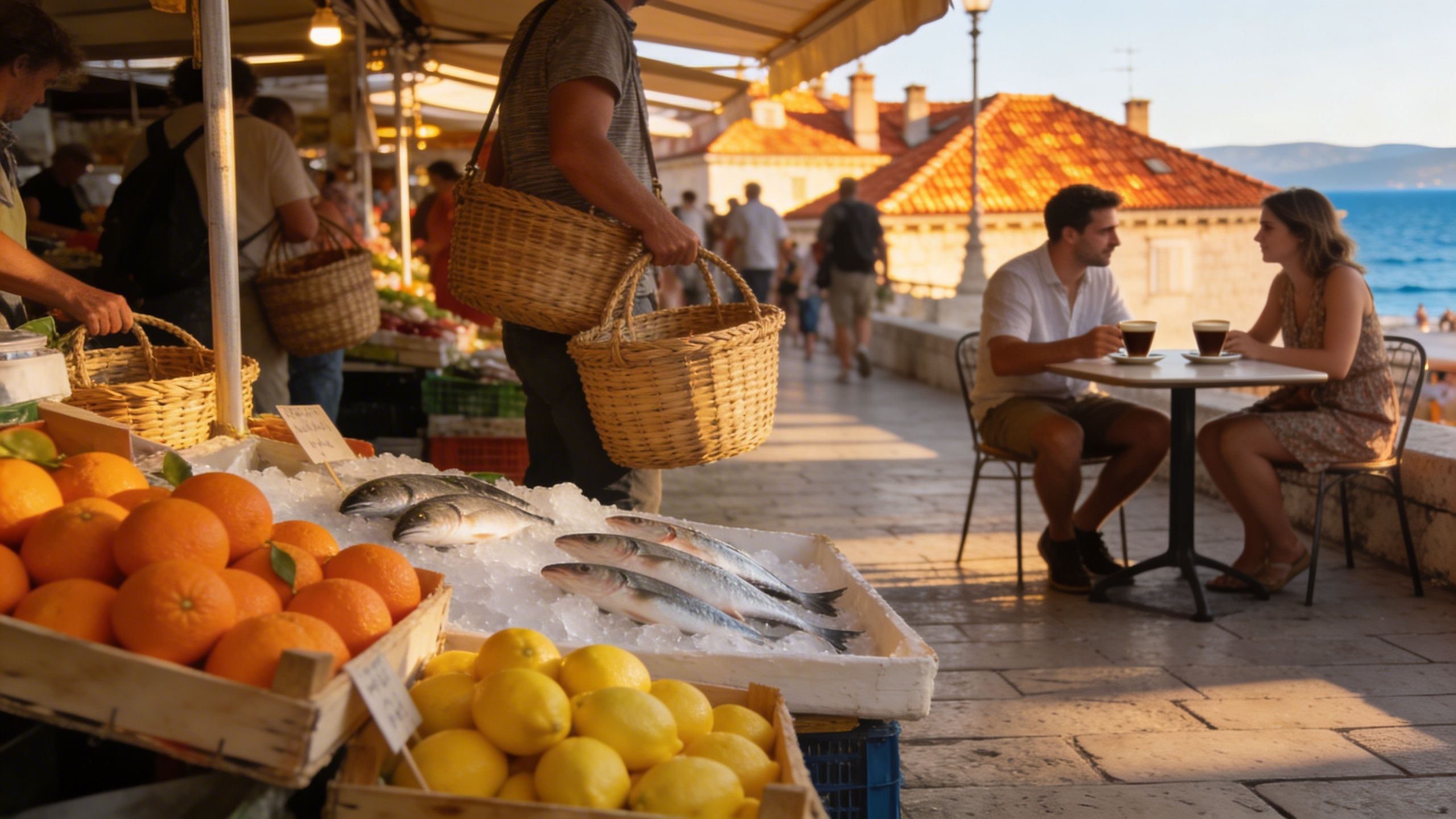Cyprus: Life-Led Buying — Fees, VAT and Local Trade‑offs
How Cyprus’s lived rhythms shape legal choices: practical steps on VAT, transfer fees, title checks and neighbourhood trade‑offs to buy the right home.
Imagine a Sunday morning in Limassol: terrazzo tables on Anexartisias shaded by plane trees, the sea smelling faintly of salt and citrus, and a neighbour bringing over a tray of fresh halloumi. In Cyprus, the pace is deliberate and convivial — towns pulse with markets, cafes and old stone lanes — and that very rhythm changes how you buy. Recognising the island as lived culture first, transaction second, prevents choices that look right on paper but wrong in practice.
Living Cypriot Days: how the island shapes how you live
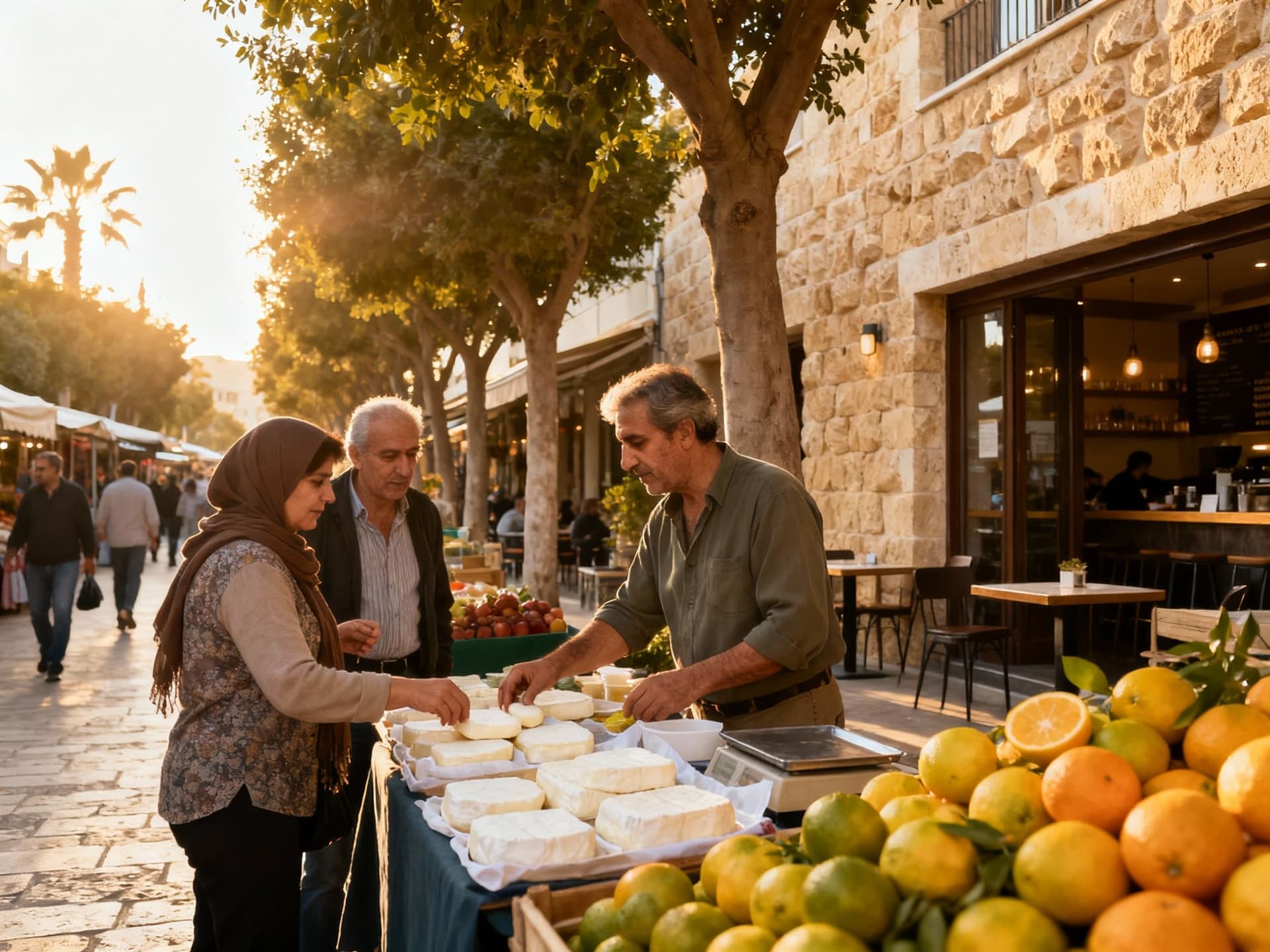
Cyprus is not a monochrome Mediterranean postcard; it is a stitched landscape of coastal promenades, Venetian-era lanes, and mountain villages where fir and stone meet small vineyards. Your daily rituals — walking to the bakery in Kato Paphos, buying fish at Larnaca’s central market, or choosing an afternoon coffee on Limassol’s Molos — will determine whether you need a compact apartment with balcony rooms or a house with a courtyard and storage for olive oil presses.
Neighbourhood pulse: Limassol, Nicosia, Paphos and the Troodos villages
Limassol feels cosmopolitan yet contained — fashionable cafes on Germasogeia strip sit beside older quarters where restored townhouse facades still show Venetian cornices. Nicosia offers a quieter, civic life with tree-lined avenues and galleries inside a living city-walls circuit. Paphos is where coastal calm meets rising demand; recent data show notable price acceleration there. In the Troodos range, villages such as Omodos or Platres offer stone cottages, slow market days and the kind of provenance collectors prize.
Food, ritual and season: why lifestyle shapes property choice
A terrace that catches the evening breeze is not a luxury but a room for daily life: meze at dusk, drying figs on racks, and afternoons with sea-breezes that make indoor-outdoor planning essential. For families, proximity to international schools in Limassol or Nicosia matters; for those seeking retreat, a stone house in Pissouri or the Troodos estates is persuasive. Seasonality steers utility: strong summer trade in coastal towns increases rental potential but also changes the neighbourhood’s tempo.
- Limassol: Anexartisias and Germasogeia — cafes, seaside promenade, bilingual services
- Nicosia (Ledra/Lykavittou streets): masonry townhouses, galleries, discreet embassies
- Paphos (Kato Paphos, Peyia): quiet coastal life with a growing heritage restoration scene
- Troodos villages (Omodos, Platres): stone-built cottages, vineyards, insulated cooler summers
Making the move: legal realities that protect the life you imagine
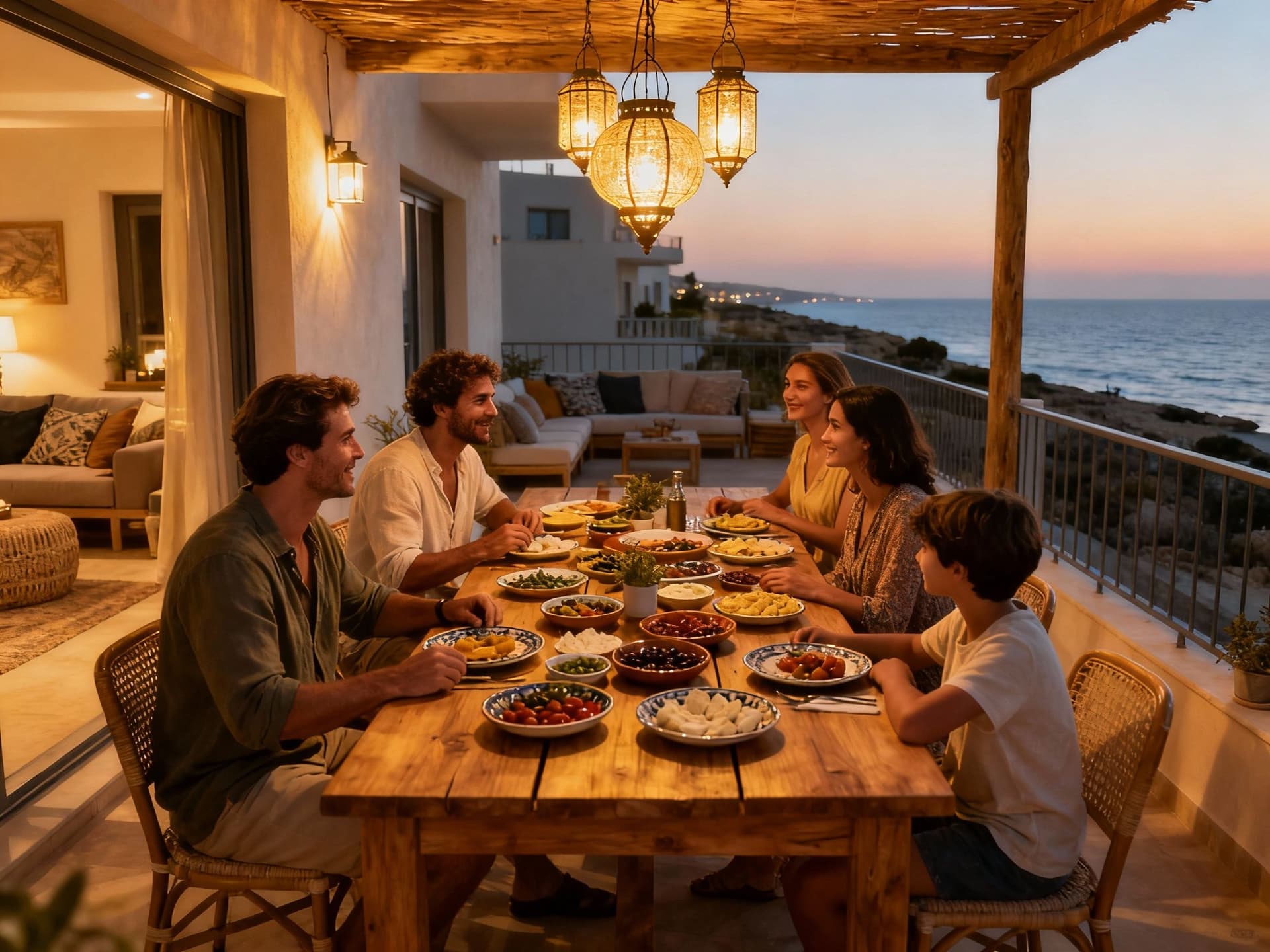
Dreams must pass through the practical sieve: title security, tax regimes and local administrative rhythm. Cyprus retains straightforward procedures — contracts, title registration, transfer fees and occasionally VAT on new builds — yet the order and timing matter. A misread of transfer-fee exemptions or VAT treatment can convert a stylistic win into an expensive oversight.
Transfer fees, stamp duty and the VAT pivot
Two facts change outcomes for buyers: (1) when VAT applies to a new-build sale, transfer fees are usually not payable; (2) where VAT is not charged, the government commonly applies reductions (recent practice has included a 50% reduction). Stamp duty is modest but unavoidable at contract registration. Early legal advice — within the first week of an offer — secures the correct tax framing and can save thousands.
Property types and planning: what to check before you commit
Freehold coastal apartments, semi-detached villas and traditional village houses each carry differing documentary legacies: building permit completeness, ‘as-built’ conformity, and prior land subdivisions. Insist on up-to-date planning clearance, a Cadastre check and historic searches to reveal any servitudes, outstanding planning infractions or suspended deeds. Expect title transfers to take months; budget for interim rental or staging.
- Secure the deal: a recommended step-by-step process
- 1. Instruct a Cyprus lawyer to run title and planning searches within 7 days of offer.
- 2. Clarify VAT status and transfer-fee exposure; obtain a written estimate of likely fees.
- 3. Use a power of attorney for practical signings and register the contract promptly to secure price.
Insider knowledge: expat lessons and local truths
Expat communities teach one consistent lesson: value the rhythm of the place over headline prices. I’ve seen buyers choose Limassol for nightlife only to resent summer crowds; others who bought in Paphos for serenity discovered a vigorous restoration scene and later benefited from capital appreciation. Market indices show modest, regionally uneven growth — Paphos and parts of the Troodos corridor can outpace Nicosia or Limassol for certain cottage-style homes.
Cultural practicalities: language, services and community
English is widely spoken in urban and coastal areas; official procedures, however, are conducted in Greek and require accurately translated documents. Local agents and bilingual lawyers expedite the process, but cultural fluency — knowing when shops close for siesta, or that a village festival affects access — matters when assessing livability. Neighbourhood reputation is as important as construction quality.
A pragmatic checklist for long-term stewardship
- Confirm title deeds and any outstanding mortgages or encumbrances before final transfer.
- Plan for maintenance that respects local materials: stone walls, timber shutters and lime plaster need different care than new build cladding.
- Consider long-term uses: family home, seasonal rental, or restoration project — each has different tax and planning implications.
Conclusion: Cyprus rewards those who buy for a way of life rather than a ledger. If you begin with the sensory — morning markets in Larnaca, an evening promenade in Limassol, the quiet stone-light of Troodos — the legal steps that follow feel less transactional and more like stewardship. Instruct a bilingual lawyer early, clarify VAT and transfer-fee exposure using the Land Registry calculator, and seek an agent who understands both provenance and paperwork; they will keep the island’s lived reality at the centre of your purchase.
Norwegian with years in Florence guiding clients across borders. I bridge Oslo and Tuscany, focusing on legal navigation, cultural context, and enduring craftsmanship.
